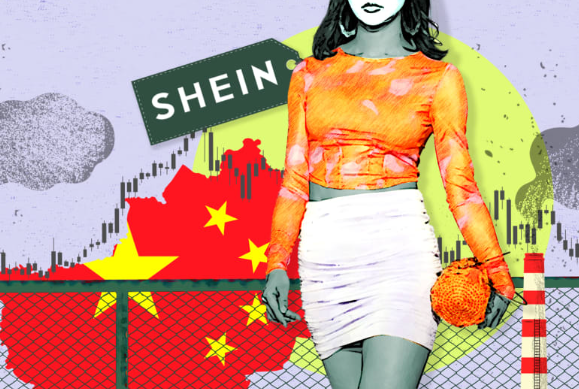Shein told that data on American users is housed in the United States, and that the company is working to expand its supply chain outside of China.
- IMPORTANT NOTES
- Shein has emerged as one of the world’s most powerful fast-fashion players.
- The growth of the company has been hampered by its ties to China and charges that it employs forced labor in its supply chain, violates labor regulations, and steals designs from independent artists.
It’s no secret that Shein wants to go public, but the fast-fashion behemoth will have to overcome a series of roadblocks before it can do so. During the Covid-19 pandemic, the digitally native business rose to prominence as buyers around the world fell in love with its fashion-forward styles, limitless choice, and dirt-cheap costs.

The company has a reported valuation of $66 billion and has appointed Donald Tang, a former Bear Stearns investment banker, as its executive chair and public face. A public offering has long been rumored as the eventual aim of Shein’s transformation from a $5 T-shirt firm to a worldwide behemoth capable of competing with legacy retail titans.
However, as it attempts to top off its spectacular rise with a market launch in the United States, its ambitions have been hampered by its ties to China, as well as rising charges that it exploits forced labor in its supply chain, violates labor regulations, hurts the environment, and steals ideas from independent artists.
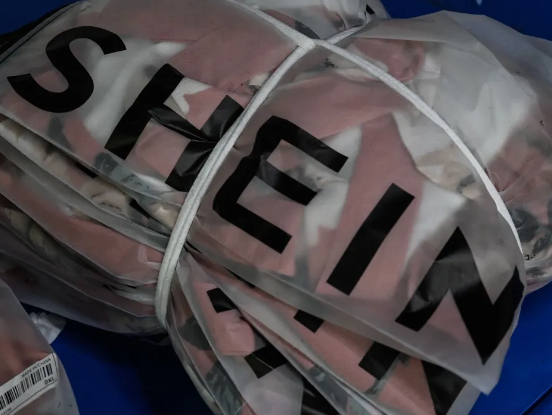
Shein is taking steps to address such concerns and demonstrate to US regulators and Congress that it can be trusted to go public in the US, where scrutiny of Chinese-founded enterprises has increased in recent years. The corporation is under increased scrutiny from lawmakers, including an inquiry by the newly formed House Select Committee on the Chinese Communist Party, and has been entangled in the geopolitical competition between the United States and China.
“IPO investors right now want to see a straightforward story,” said Matt Kennedy, senior IPO market strategist at Renaissance Capital. “I could certainly see some prospective investors just wanting to avoid the deal entirely, at least until some of those things are resolved.”
If Shein can overcome these obstacles while keeping its successful strategy, it might become a Wall Street winner, according to one longtime retail advisor who spoke anonymously because they are not authorized to comment publicly about specific companies.
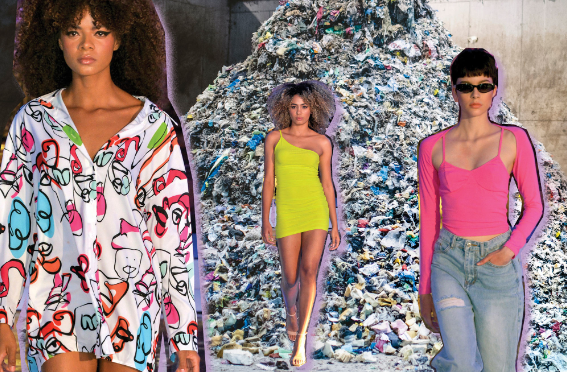
“For all the bad press and publicity and news, they’ve been incredibly innovative in how they’re producing product … so that to me says they’ve got something really good there that other retailers can learn from,” the consultant said. “They have to deploy their innovation in a way that’s going to address these issues and then if they can do that in a way that they still have the same kind of compelling business on top then wow, are they winning.”
Shein told that the company has not registered to go public and has no plans to do so. Nonetheless, sources predict that an IPO might occur as early as 2024. Here’s what the company needs to overcome before that ideal can become a reality, and what it’s doing to get there.
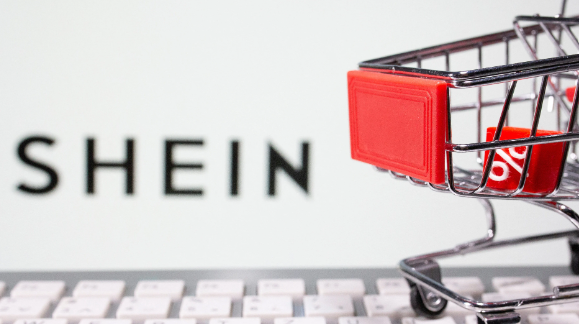
Also Read: Bajaj Auto Ltd Q2FY24 Result: Revenue Increases 6% While Net Profit Climbs To Rs 2020 Cr
Forced labor and a confrontation with Congress, Shein
Since May, the House subcommittee has been examining Shein after hearing expert testimony that the corporation was obtaining cotton and other products from China’s Xinjiang region. Several months prior, Bloomberg tested clothing supplied to the United States and discovered that some were made with cotton from Xinjiang.
Evidence of genocide, torture, and forced labor against the region’s Uyghur ethnic community pushed authorities to ban the import of cotton and other Xinjiang-made items in 2021. However, detractors claim that the commodities can still enter the United States through a tariff law loophole known as de minimis.
Under the provision, parcels worth less than $800 are not subject to import charges and are not subject to the same level of scrutiny from US Customs, which is entrusted with screening packages to ensure things from prohibited locations do not enter the nation.
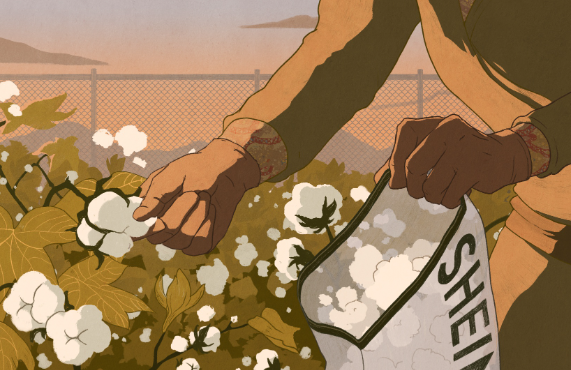
Shein frequently distributes its products directly to American consumers through its network of Chinese suppliers, as opposed to traditional retailers, which typically import big batches of merchandise and transfer them to U.S.-based warehouses for distribution.
The committee is looking into Shein because it is concerned that Uyghur forced labor is being employed in its supply chain and has gone unnoticed because to the de minimis provision. Investigations into Temu, Nike, and Adidas are also ongoing.
In June, the panel ruled that “the vast majority of products” shipped by Shein to the United States “are less likely to face the same level of customs scrutiny that other retailers might face on a formal entry.” The committee has yet to reach a verdict regarding forced labor in Shein’s supply chain. According to a committee aide, the investigation is still ongoing.
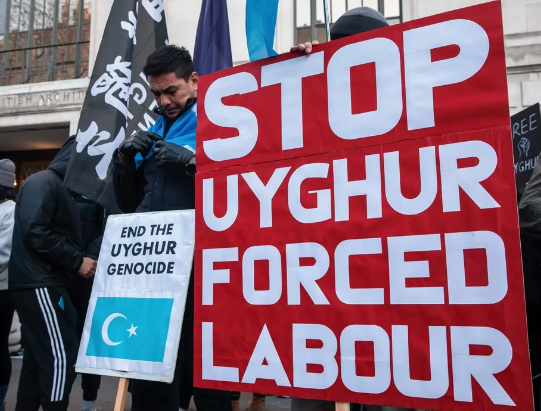
In response to the probe, some Shein executives have spent time in Washington, D.C., meeting with lawmakers and attempting to allay their worries. “As a company that abides by every single local law, we’re going to cooperate with any investigation and provide any information that’s requested from us,” said Marcelo Claure, the company’s newly appointed group vice chair and former SoftBank CEO, in an interview.
When asked about allegations of forced labor in Shein’s supply chain, Claure told that he does not “believe those allegations are correct.” “I can wholeheartedly say that there is no such thing as forced labor, or anything even remotely close to it, as it relates to the [Shein] manufacturers that I visited,” Claure added, referring to previous visits.
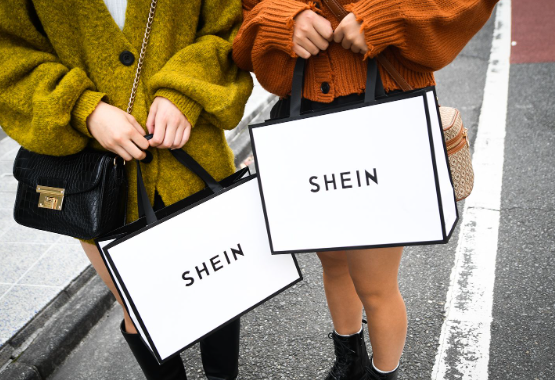
However, the company previously admitted that cotton from Xinjiang was discovered in its raw materials using Oritain, a third-party supply chain firm that can analyze cotton fibers and track them back to specific farms. Oritain collaborates with a number of large retailers, including Target, Costco, and Ralph Lauren. According to Rupert Hodges, Oritain’s chief commercial officer, 13% of Oritain’s cotton tests are positive for hazardous locations.
According to Shein, 2.1% of her cotton tests were positive for prohibited zones as of July. When a test resulted in a positive result, “production of affected products was halted, and any products containing cotton associated with the positive tests were removed from sale,” according to a Shein representative. The corporation has declined to release test findings from August onward, but has stated that they have “remained consistent” with inspections completed through July.
A Shein representative stated that while the positive test percentage is lower than the fashion sector norm, any positive test is “unacceptable.” The store has pledged to stop using Chinese cotton in its production because the vast majority of it comes from Xinjiang, and it is working to reduce its positive test rate to “as close to zero as possible,” according to a spokesman.

However, forced labor can still be found in other sectors of the supply chain, according to Chloe Cranston, Anti-Slavery International’s head of themed advocacy programs. Shein relies on hundreds of contracted manufacturers, the most of which are based in China, to design, create, and transport its products. According to Cranston, workers at those factories may be forced to work there under state-sponsored labor transfer programs.
“It’s not only about where the cotton is coming from, it’s how it’s ginned, it’s how it’s spun, it’s how it’s turned into final product and so on, and we see Uyghur forced labor risks across all these tiers,” Cranston told in an interview. “Oritain or comparable companies are part of the solutions, but they aren’t the sole solution themselves.”
In response, the company stated that internal Shein auditors and third-party firms undertake frequent and unannounced audits of its manufacturing plants to guarantee that no forced labor or other infractions are occurring.
Also Read: Netflix Earnings: User Growth Will Show That The Most Recent Correction Created A Buying Opportunity
According to the firm, 11% of audits in 2022 revealed “zero tolerance violations,” such as child labor, forced labor, and wage violations, and 28 suppliers were dismissed as a result. However, the audits only cover a small portion of Shein’s vast supply chain.
Shein audited only 1,941 firms out of around 5,400 total suppliers last year. The audited contractors accounted for around 85% of Shein-brand products by procurement value, but represented fewer than half of the retailer’s suppliers, providing a restricted view of the retailer’s supply chain and the prevalence of labor violations.
Aside from the Shein brand, the company also makes items under the Dazy, Cuccoo, and Glowmode labels. According to a business representative, Shein has increased audits this year and aims to undertake inspections that cover 90% of Shein-brand products by procurement value.
Chinese ties and a new house in Singapore
As Shein attempts to clean up its image amid escalating geopolitical tensions between Washington and Beijing, it is quick to stress out that company is headquartered in Singapore and was founded in China. According to some sources, Shein was formed in 2008 in Nanjing, China. However, the company’s official history began in 2012.
There are no references to Shein’s birthplace on the website’s “About” pages. According to a Shein spokeswoman, the company registered its headquarters in Singapore in 2019 and has been based there since 2021. According Chinese sources, the shop appears to have de-registered its original corporation in Nanjing in 2021.

Shein’s decision to relocate its headquarters to Singapore several years ago and sow seeds outside of China could help pave the road for its IPO, according to Shang-Jin Wei, a professor at Columbia University’s graduate schools who teaches Chinese business and economy, as well as finance and economics. As long as Shein imports and exports large amounts of goods into and out of China, a major goal for the region, it may remain in the good graces of the Chinese Communist Party while Beijing seeks to limit international investment, according to Wei.
“If Shein can credibly claim that it is not a Chinese company, it will reduce sensitivity in the United States.” At the same time, Wei told that if Shein can claim it is not a Chinese corporation, “then many of the regulatory requirements from the Chinese security regulation side do not apply to Shein as well.”
Nonetheless, the majority of Shein’s vast supply network remains in China, and the company’s relocation to Singapore has done little to alleviate lawmakers’ concerns. Some are concerned that the corporation is still tightly tied with the Chinese government, and that information about Shein’s American consumers may end up in its hands.
“As long as you’re in China or on Chinese territory, the CCP has their hooks in you.” “I am not convinced that the CCP does not have control over all of these companies,” said Montana Attorney General Austin Knudsen in an interview. “If the CCP demands information and your company’s cooperation, you will provide it.” So, no, being in Singapore makes me feel any better.”
Wei acknowledged that Shein’s supply chain vulnerability to China could pose a risk to the company. “If the Chinese government does want to limit the company, of course it has many ways, as long as Shein depends on China-based suppliers,” Wei added. In response to data security concerns, a Shein spokeswoman stated that the company maintains U.S. data in Microsoft and Amazon cloud services “in data centers and regions located within the United States.”
If it sought foreign investment, the company declined to comment on whether it would be subject to Chinese securities rules. As of publishing, the company had not confirmed whether its mystery CEO Chris Xu is still a Chinese citizen, but did state that he “resides in Singapore.”
When questioned if Shein is considered a Chinese corporation by China, Claure stated he has “no idea.” “I’ve been investing in global companies for many years and I would consider Shein to potentially be the most global company I have ever been involved with,” Claure added.
When asked if Shein’s Chinese supply chain poses a concern, Claure replied the company is no different than other global corporations who perform the majority of their manufacturing in China. Shein, on the other hand, is seeking to localize its supply chain and is in the midst of establishing manufacturing hubs in Brazil and Turkey. According to Claure, the company is currently analyzing opportunities in India and Mexico.
“I don’t think it’s fair to say that we’re moving away from China, but we are getting as close as we can to our customers with a very simple intent and that is, the closer we are to our customers, the faster we can fulfill their needs,” Claure said.
Knudsen, along with 15 other attorneys general, wrote to US Securities and Exchange Commission Chair Gary Gensler in August, pleading with the agency to guarantee Shein and other foreign corporations respect US law before going public in the US.
He has also spat with TikTok, which is based in China, amid allegations that it is eavesdropping on US users. He suggested legislation that would prohibit the use of the app in Montana, which would go into effect in January if no legal challenges were filed.
Knudsen is considering taking his struggle with Shein to the next level by filing civil investigative demands against the company, requiring it to turn over certain financial and labor information. “I’ll make the same offer [to Shein] that I made with TikTok. Move wholly to the U.S. and cut all ties with the CCP and fine, we’ll drop all of this,” Knudsen said.
Copyright infringement, shifting perspectives on sustainability
Another concern for Shein is that it is frequently sued for copyright infringement on the grounds that it stole designs and utilized them in products without permission. Three designers sued the company in July, arguing that Shein’s copyright violation is so severe that it can be called racketeering.
Claure said that Shein has a “zero tolerance policy” for copyright infringement, but that “mistakes do happen.” He stated that if infringement is discovered, the corporation “immediately” ceases manufacture of the item. A corporate representative added When copyright infringements occur, Shein conducts disciplinary action against designers and manufacturers, and concerned artists can submit takedown notifications if they feel their work has been duplicated.
In addition, the corporation employs image-recognition technology to detect suspected infringement and does manual checks. Aside from legal issues, Shein frequently gets criticism for its fast-fashion strategy due to the chance that its items will end up in a landfill after a few uses as consumers become more environmentally sensitive.
“We’ve heard that younger generations are much more concerned about the environment, about these issues and topics,” said Sonia Lapinsky, a partner and managing director at AlixPartners’ retail business. “And yet, we continue to see retailers who are really bad examples of this, even some of the worst, do incredibly well, even with the younger consumer.”
Shein would be compelled to disclose its greenhouse gas emissions if it went public under looming SEC regulation revisions. However, the company has already made that information public in its 2022 ESG report, and it’s unclear how much anxiety about its environmental record is affecting sales.
“Pressure can even come from consumers who say, ‘We’re demanding this, and we don’t want to shop at retailers who can’t show a good score.'” “I don’t think we’ve seen that yet, and it’s unclear whether it’ll happen,” Lapinksy added. “Will the pressure come solely from regulators, investors, and boards?” Or will the consumer genuinely react with their money and wallet?”
Click here to know more about Shein.
Also Read: The Pandemic Increased Household Wealth In The United States
image source: google







